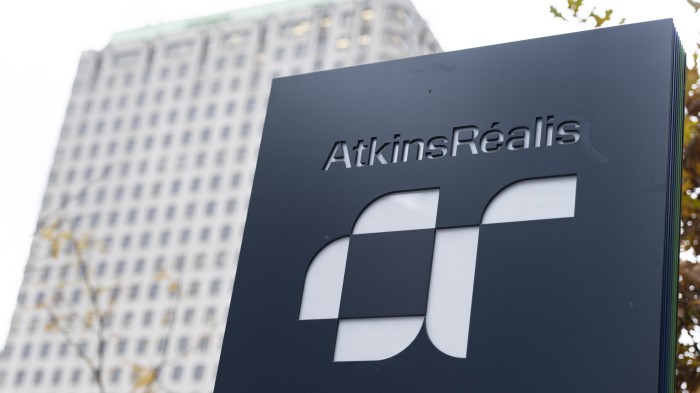Western groups step up efforts to win nuclear contracts in eastern Europe

Unlock the Editor’s Digest for free
Roula Khalaf, Editor of the FT, selects her favourite stories in this weekly newsletter.
Western companies are stepping up efforts to win nuclear contracts in eastern Europe in response to stringent EU net zero targets, a senior executive at an engineering group behind a new reactor in Romania has said.
“We’ve got our elbows out in eastern Europe,” said Joe St Julian, president of nuclear business at Canadian group AtkinsRéalis. “We’re all trying to differentiate ourselves and win contracts.”
He said the region was ripe for business as it struggled to build up renewable power industries to hit net zero goals set by the European Commission. Other nuclear energy companies involved in projects in the bloc’s eastern flank include US groups Westinghouse and NuScale Power.
AtkinsRéalis signed a C$224mn (US$159mn) contract with the Romanian government on Friday for two new Candu (Canada deuterium uranium) reactors, which use a technology that does not need enriched uranium and so is perceived as saving costs.
The company, the only one that produces Candu plants, will build them at the Cernavodă site, home to two other similar units that started operations in 2007.
As well as pressure to meet net zero goals, demand for western nuclear technology has risen in eastern Europe as countries try to cut reliance on Russia for energy.
The full-scale invasion of Ukraine, which resulted in the energy crisis, helped prompt the change for the market after a hiatus following the Japanese nuclear disaster at Fukushima in 2011.
However, St Julian warned that Brussels could put Europe at risk of falling behind on climate goals because of its guarded approach to nuclear power in part due to strong opposition in Germany and Austria.
In European parliament hearings last week, the EU’s next energy commissioner, Dan Jørgensen, ducked questions about whether the EU budget could go towards nuclear projects.
“The EU . . . is very serious about meeting its obligations, its commitments to net zero by 2050 and the only way that can be done is with nuclear power,” St Julian said.
European countries that were formerly part of the Soviet bloc have historically had strong nuclear sectors, using Russian technology.
With the exception of Hungary, where two Russian reactors are under consideration, the former Soviet satellites now look elsewhere for technology.
“Eastern European countries have well understood that nuclear is the only primary energy source that can produce massively, reliably and 24/7,” said Stefano Monti, president of the European Nuclear Society, an industry body.
The signing of AtkinsRéalis’s contract with Romania took place at the UN’s COP29 climate conference in Azerbaijan. It followed the pledge at last year’s COP by more than 30 countries, including 13 EU member states, to triple nuclear energy capacity by 2050.
The project is backed by $7.25bn in export credit financing from the US, Canada and Italy, and is among a new wave of nuclear plants either contracted or under construction in eastern Europe, including in Slovakia, Hungary and Poland.
St Julian said the Cernavodă project was an important step for the company in eastern Europe, one of four regions it has targeted for contracts, including Australia and the Indo-Pacific.
“It’s a flag and it creates a foundation for other countries . . . One of the things that drives the cost down and makes it more appealing is not building two [reactors] at a time but building a fleet,” he said.
#Western #groups #step #efforts #win #nuclear #contracts #eastern #Europe




